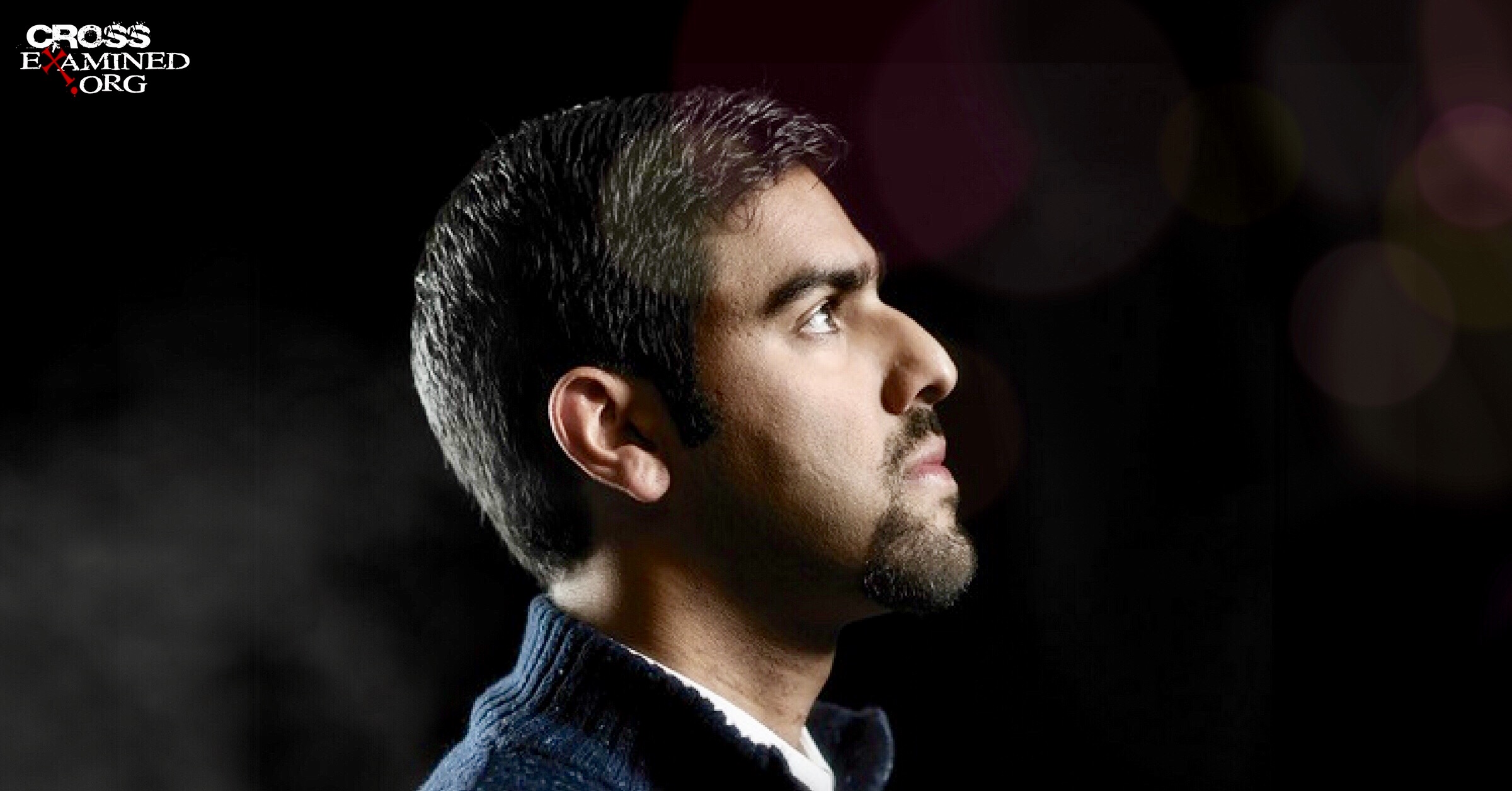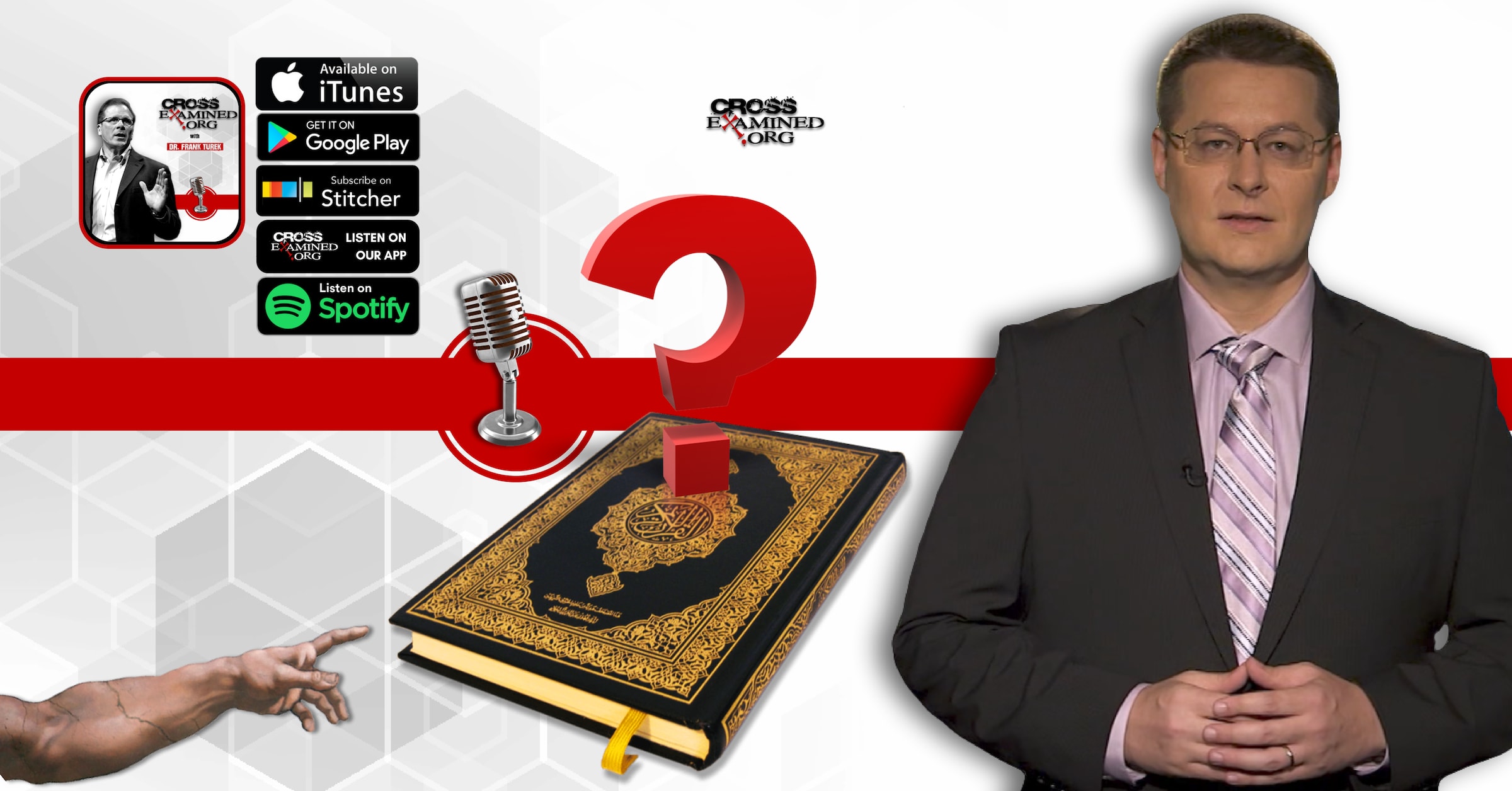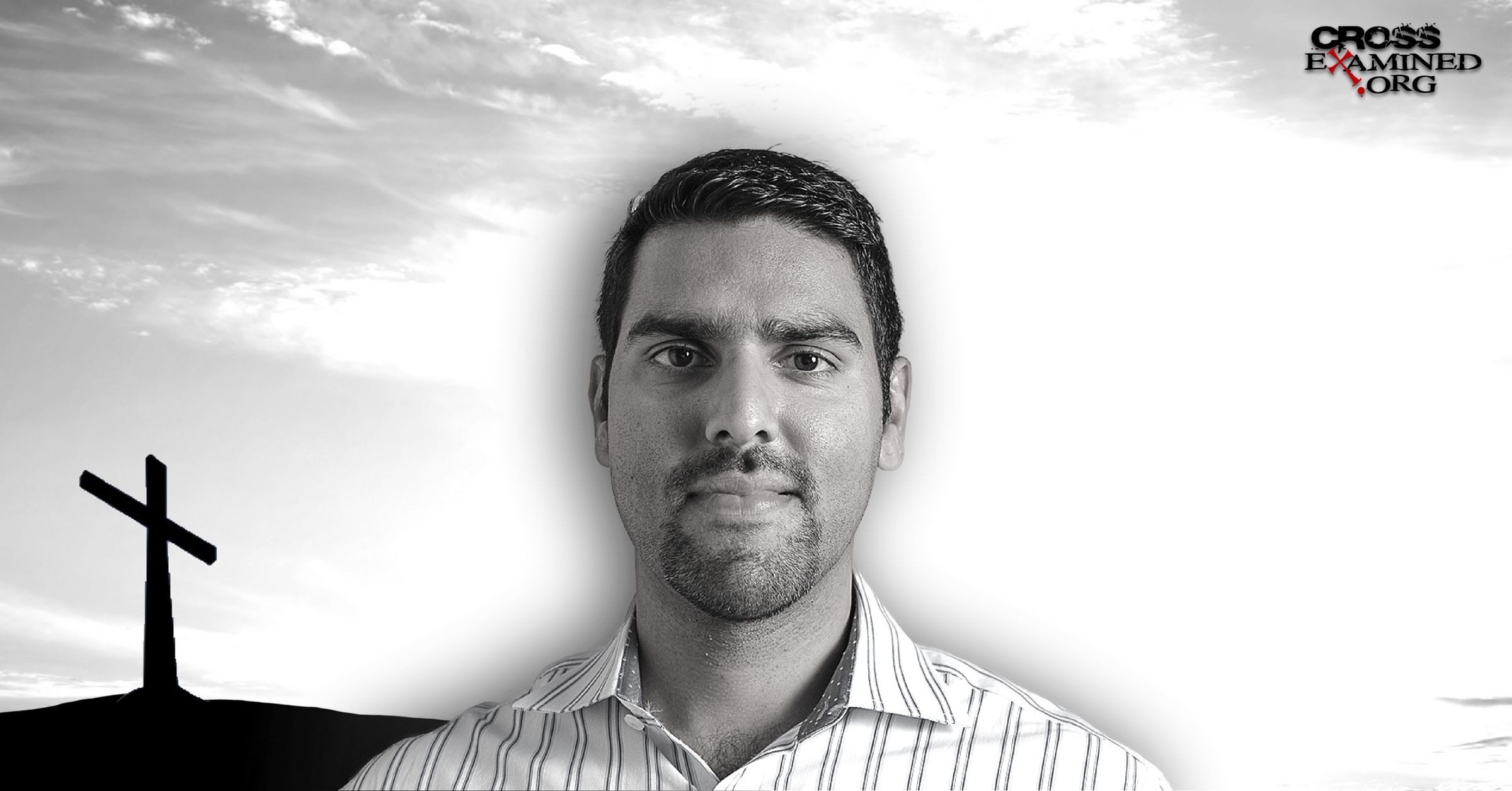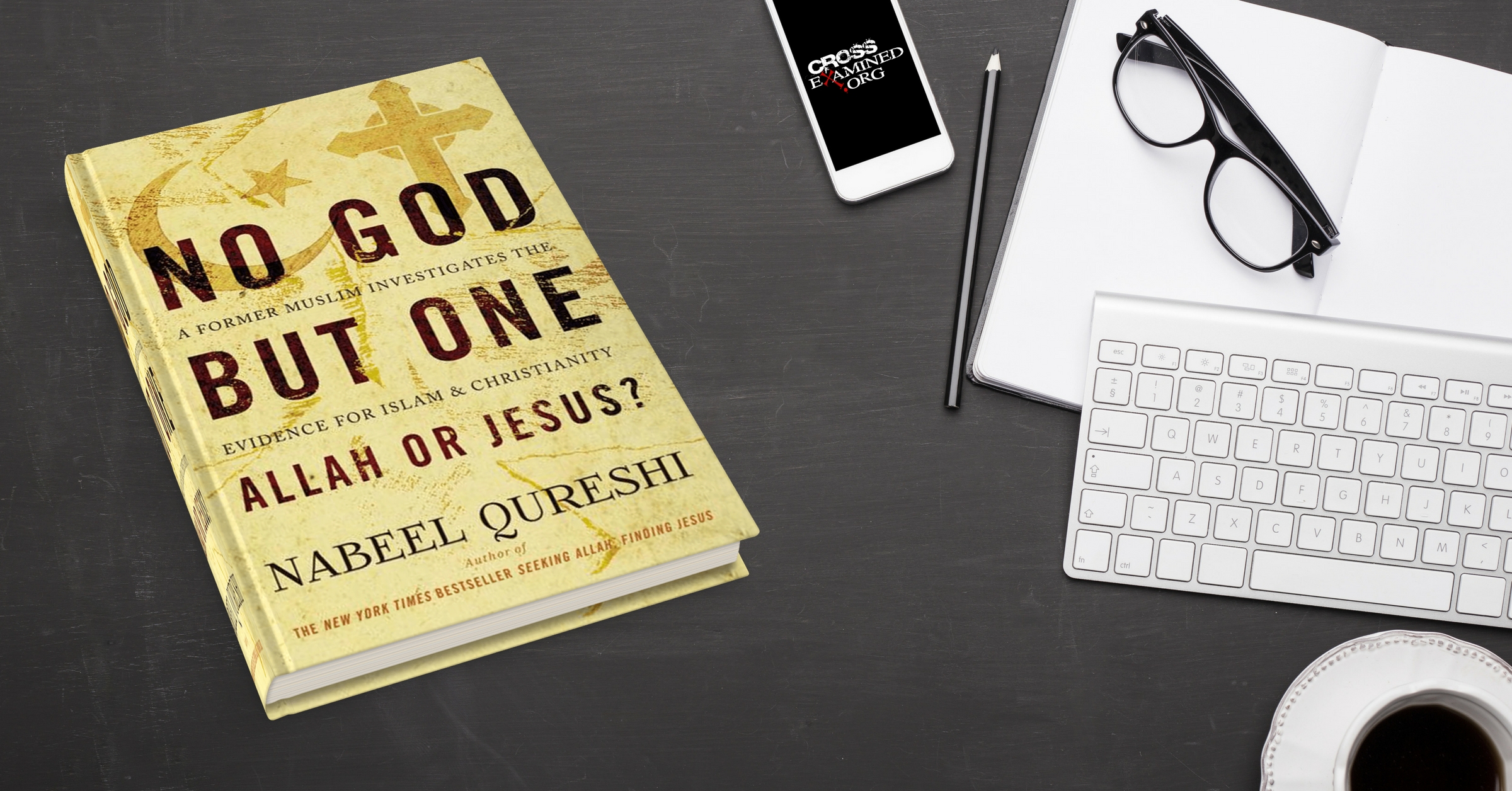¿Cómo un hombre que enfrenta su propia muerte prematura exuda una combinación edificante de gracia, amor y verdad? Mi amigo Nabeel Qureshi, quien ha hecho esto por más de un año, murió el sábado a los 34 años. En caso de que no lo sepas, Nabeel fue un ex musulmán devoto que se convirtió en un poderoso defensor del cristianismo después de un proceso de siete años de evaluación a las pruebas para el cristianismo con su amigo David Wood. Su primer libro, Seeking Allah, Finding Jesus (Buscando a Alá, Encontrando a Jesús) es un best-seller internacional.

Desde que se le diagnosticó el cáncer de estómago en etapa cuatro el año pasado, Nabeel ha compartido sus pensamientos, preocupaciones y oraciones a través de 43 video blogs en su canal de YouTube. Su último video, grabado desde su cama en el hospital apenas siete días antes de su muerte, es una petición para que usemos su trabajo y ejemplo para amar a otros llevándolos hacia la verdad.
Como verán en sus videos, Nabeel exhibió el amor de Cristo hasta el final. Él nunca vaciló en su confianza de que Dios podría sanarlo, pero reconocía que pudiese que no lo hiciera. Nabeel comprendió que vivimos en un mundo caído, y que Dios no le promete a ninguno de nosotros una vida larga y sin problemas. De hecho, Jesús prometió que habría más de lo contrario. Dijo que “en el mundo tendréis aflicción; pero confiad, yo he vencido al mundo”.
Sin embargo, aunque parezca insensible preguntar esto mientras estamos entristecidos, la gente se pregunta por qué Dios no sanó a Nabeel. Después de todo, era un joven brillante y carismático que fue quitado demasiado pronto del lado de su esposa Michelle y de su hija Ayah, y del resto de nosotros. Nabeel tenía tanto más que dar a su familia y al Reino de Dios que su muerte parece sin sentido.
Entonces, ¿por qué Dios no sanó a Nabeel?
Preguntas difíciles
¿Es porque un mal, como una muerte prematura, prueba que no hay Dios? No, porque el mal no existiría a menos que existiera el Bien, y el Bien no existiría a menos que Dios existiera. El mal no existe por sí solo. Solo existe como falta de algo bueno. Como el cáncer. Así que cuando nos quejamos del mal, en realidad estamos presuponiendo el Bien. Un estándar objetivo del Bien es un estándar que está más allá de la mera opinión humana. Eso solo puede ser la naturaleza de Dios. Así que el mal puede demostrar que hay un demonio allá afuera, pero no puede negar a Dios. En cambio, los boomerangs del mal vuelven a mostrar que Dios realmente existe.
¿Es porque el Dios musulmán es el verdadero Dios, y Él castigó a Nabeel por dejarlo? No, porque hay una evidencia excelente de la visión cristiana de Dios (véase el libro de Nabeel, No God but One (No hay Dios sino Uno). Además, los musulmanes que sugieren esto deben preguntarse: “¿Por qué tu Dios esperó hasta que Nabeel escribiera tres libros de superventas, hiciera cientos de horas de videos y ayudara a llevar a cientos de musulmanes a Cristo? ¿Está en su tiempo libre?” No solo eso, la obra de Nabeel seguirá llevando gente a Cristo, probablemente de una manera acelerada después de su muerte.
Entonces, ¿por qué Dios no sanó a Nabeel? ¿Qué propósito podría tener Dios para permitir que Nabeel muriera?
Algunos podrían sugerir que personas como Nabeel que experimentan tragedia deben ser peores pecadores que otros. Jesús refutó directamente ese tipo de especulación superficial en Lucas 13, cuando dijo: “Os digo: No; antes si no os arrepentís, todos pereceréis igualmente”. De hecho, todos somos pecadores que pereceremos y tenemos que arrepentirnos antes de que sea demasiado tarde.
¿Es porque Nabeel no tuvo suficiente “fe”? Las personas que afirman tales tonterías no conocen a Nabeel ni a la teología correcta. La confianza de Nabeel en Cristo era profunda e inquebrantable. Pero el punto más importante es que la fe no garantiza buena salud y riqueza como los predicadores de la “Palabra de Fe” aseguran. De hecho, su teología de intereses personales puede ser refutada por una simple observación: Jesús y los apóstoles no eran personas saludables ni ricas. De hecho, sufrieron y murieron por sus creencias. ¡No me digas que no tenían suficiente fe!
El efecto de onda
Entonces, ¿por qué Dios no sanó a Nabeel? ¿Qué propósito podría tener Dios para permitir que Nabeel muriera? Al responder a esa pregunta, debemos admitir que no puede haber un propósito último para la muerte de Nabeel (o cualquier evento) si no hay un propósito para la vida. Pero ya que Dios existe, y el propósito de la vida es reconciliarse con Él a través de Su Hijo Jesús, entonces incluso las tragedias pueden ayudar a lograr ese propósito. Tal vez más personas llegarán a conocer a Cristo a causa de la muerte de Nabeel. Es imposible para nosotros saber la magnitud de eso en este momento, pero no es imposible para Dios.
No podemos verlo completamente porque cada acontecimiento, bueno y malo, se mueve hacia adelante en el futuro para tocar innumerables eventos y personas. Este efecto de onda también se conoce como el efecto mariposa. La idea es que una mariposa batiendo sus alas en Sudáfrica, por ejemplo, podría en última instancia traer lluvia a una porción afectada por la sequía en los Estados Unidos. No podemos rastrear todos esos efectos, pero un Dios todopoderoso que está fuera del tiempo, sí puede. De hecho, ha habido miles de millones de eventos en la historia, tanto buenos como malos, que ayudaron a hacerte quien eres y ayudó a ponerte donde estás.
Así que no sabemos por qué Dios no sanó a Nabeel, pero sabemos por qué no lo sabemos. Somos finitos y Dios es infinito. La buena noticia es que el carácter y el poder de Dios garantiza que Él sacará bien del mal “a los que aman a Dios, todas las cosas les ayudan a bien, esto es, a los que conforme a su propósito son llamados” (Rom.8:28). Puede ocurrir más tarde en esta vida. Ciertamente se verterá en la vida eterna.
El efecto de onda llevó a Jacques-Marie-Louis-Monsabré, un antiguo pastor en Notre Dame en París, a confiar en Dios incluso cuando él no podía ver ningún bien viniendo del mal. Él dijo: “Si Dios me concediera Su omnipotencia durante 24 horas, verías cuántos cambios haría en el mundo. Pero si Él me diera Su sabiduría también, dejaría las cosas como están”.
De hecho, Dios redimirá la muerte de Nabeel para bien, así como redimió a Nabeel mismo. Ahora bien, Nabeel está ahora con el Señor, pero Michele y Ayah permanecen con nosotros. Como Nabeel pidió en uno de sus videos finales, oren por ellas, así como por los amorosos padres de Nabeel. Y si puedes ayudar a Michele y Ayah financieramente, ¿podrías hacerlo aquí?
Mientras estemos entristecidos, seamos agradecidos por la vida eternamente significativa de Nabeel. Hizo más por el Reino de Dios en 34 años que lo que diez mil personas hacen en 80 años. Y las ondas que él creó –las olas realmente– ayudarán a llevar a la gente al cielo por generaciones. Bendiciones para ti Hermano. Nos vemos en el otro lado.
Frank Turek es un escritor cristiano estadounidense, orador público y presentador de radio. Es autor de dos libros Correct, Not Politically Correct and Stealing from God y co-autor de dos más con Norman Geisler I Don’t Have Enough Faith to Be an Atheist y Legislating Morality. Es el anfitrión del talk-show CrossExamined en American Family Radio. Su programa de televisión, I Don’t Have Enough Faith to be an Atheist, se transmite en la Red NRB. Habla en universidades, conferencias e iglesias.
Blog Original: http://bit.ly/2K1IMgx
Traducido por María Andreina Cerrada
Editado por Jairo Izquierdo





 ANSWERING ISLAM
ANSWERING ISLAM